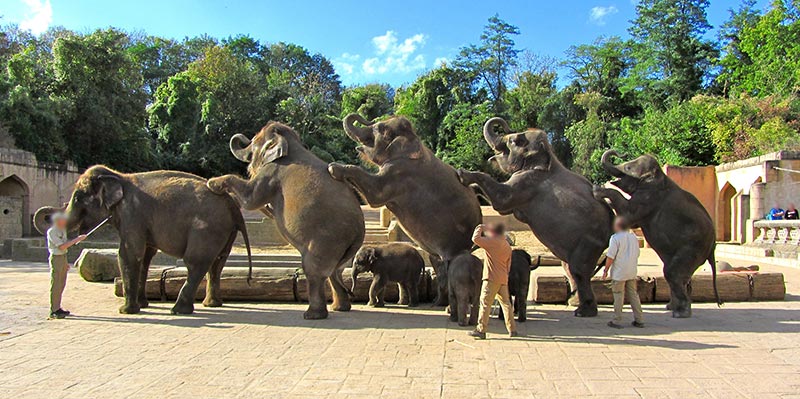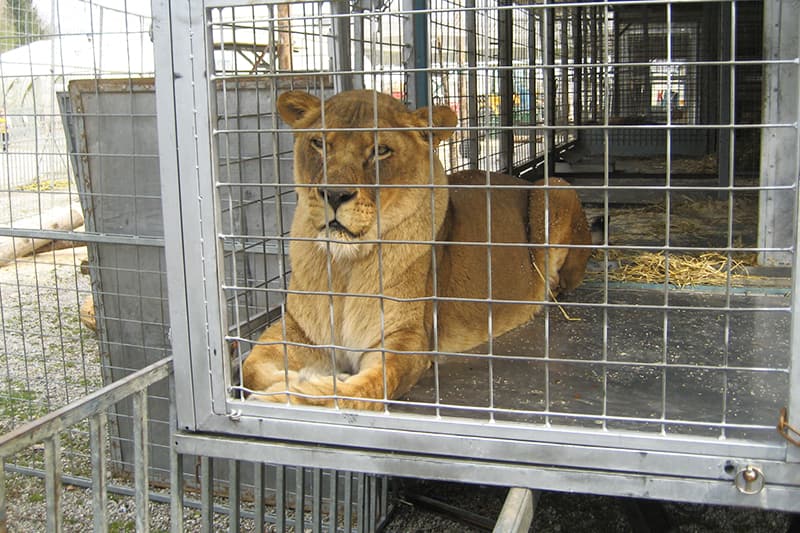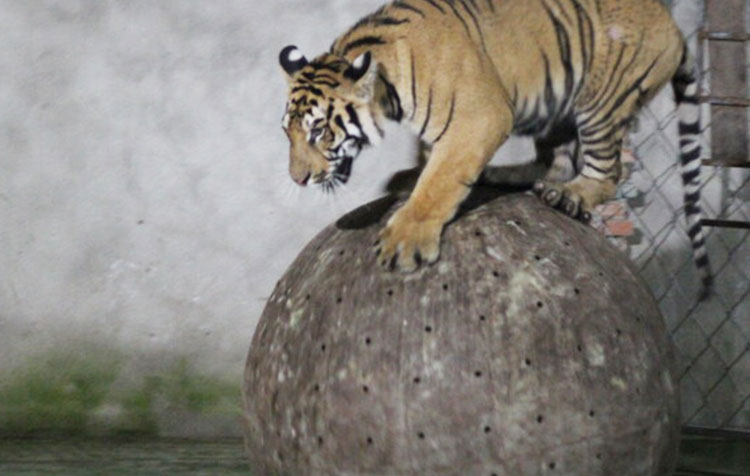Want to know more about wildlife in the entertainment industry? Then you've come to the right place! Every one of us has been to the zoo - and probably to an elephant ride. But whether for the entertainment of tourists or zoo visitors - whether artistic interludes or loud roar - whether bullfight arena, Horse racing or dolphinarium - in the end, we humans abuse animals to entertain ourselves. Is that still in keeping with the times?
Here I want to show you what animals are kept in the entertainment industry, how they suffer, and what each of us can do to help the Help animals.
Here is another short Table of contents for you:
Notice: At first, I wanted to make this post a pro & con. But after my research, there is basically only one advantage of animals in entertainment: that it is entertaining at first glance. Since the cons so clearly outnumber the pros, I will mainly describe the things that speak against keeping animals for our entertainment.
What animals serve the entertainment industry?

Of course, it's important to get an overview. But in fact, there is basically no animal that does not serve the entertainment industry in some form. The list of animals I'm about to introduce you to could therefore be continued ad infinitum:
- Elephants (e.g. in the circus)
- Tiger (e.g. in the circus)
- Lions (e.g. in the circus)
- Leopards (e.g. at the zoo)
- Rhinos (e.g. in the circus)
- Hippos (e.g. in the circus)
- Bears (e.g. in the circus)
- Giraffes (e.g. at the zoo)
- Camels (e.g. for camel riding)
- Sea lions (e.g. at the zoo)
- Whales (e.g. for whale shows)
- Eagle (e.g. in zoos)
- Dolphins (e.g. in dolphinariums)
- Zebras (e.g. at the zoo)
- Bulls (e.g. for bullfights)
- Horses (e.g. for horse racing)
- Ducks (e.g. in the duck circus)
- Foxes (e.g. for fox hunting)
- Donkey (e.g. for donkey riding)
- Gorillas (e.g. at the zoo)
- Monkeys (e.g. in the circus)
- Dogs (e.g. for dog racing)
- Cats (e.g. in the circus)
- …
You can learn more in the articles about the Circus with animals and Sense of zoos.
Why you should avoid animals in the entertainment industry
The embedded video post Gordon and Alyosha actually says it all. Especially the picture of Seaworld's parking lot, which is so much bigger than the one that houses the pool for the whales, is appalling. But here I want to list for you exactly why animals in the entertainment industry are out of date:
- Dressage methods: Bears learn to lift their paws and dance for performances in the circus, for example, with hot stove plates. So that dolphins track and don't go crazy, they are given Valium, for example, to make them obedient. And elephants are trained with painful elephant hooks.
- Behavior: Animals in captivity cannot behave according to their wild nature and develop psychoses. This then manifests itself in behavioral disorders, such as the head bobbing of elephants.
- Defenselessness: Animals have to be entertained every day because we want to make money from them and be entertained by them. They have no other choice because we force them to. In traveling circuses, for example, they are forced to endure constant transportation, temperature changes, and new environments.
- Mental Pain: In captivity, individual animals suffer primarily from loneliness. Young animals are separated from their mothers, for example. Added to this is the noise from cities and spectators. Animals suffer and become ill more quickly.
- Diseases: Animals in the entertainment industry, which cannot be kept in a species-appropriate manner at all, develop not only psychoses, but also stomach ulcers, pneumonia and other life-threatening diseases.
Tip: To get deeper insights, you should definitely take a look at recommended vegan documentaries to throw. For example, the documentary "Blackfish" is genuinely enlightening about animal husbandry in the entertainment industry.
Do not support anyone who exploits animals for the entertainment of others

Anyone who rides elephants or enjoys artistic performances by animals in the circus ensures that these cruelty to animals continues. Each and every one of us can ensure that the demand for entertaining offers with animals decreases by avoiding them. The Circus Roncalli, for example, already does without animals.
Anyone who stands up against the exploitation of animals can be really proud of themselves. Just because mankind has been exploiting animals for ages and unfortunately this has become a habit, does not mean that it is morally justifiable and okay. Culture is not a justification for immoral behavior. We must also teach this to our children, because cruelty to animals and the normalization of it, is far from human values. Share your attitude with others and start online petitions in the fight against grievances. We as consumers have the power to make a difference.
Do you have questions or your own experiences with animals in the entertainment industry? Then feel free to write me a comment.
Stay sustainable,

PS.: A key in the use for animals is the vegan life. In Nutrition blog you get numerous tips to easily avoid animal products in what you eat.





